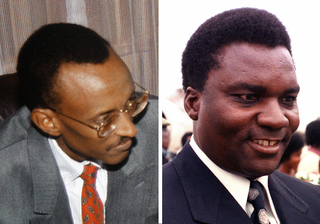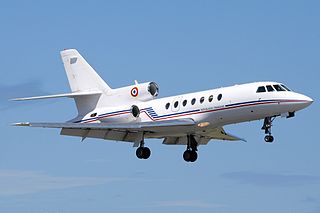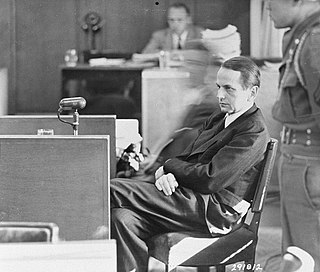Related Research Articles
The Tutsi, also called Watusi, Watutsi or Abatutsi, are an ethnic group of the African Great Lakes region. They are a Bantu-speaking ethnic group and the second largest of three main ethnic groups in Rwanda and Burundi.

Juvénal Habyarimana was a Rwandan politician and military officer who served as the second president of Rwanda, from 1973 until his assassination in 1994. He was nicknamed Kinani, a Kinyarwanda word meaning "invincible".

Paul Kagame is a Rwandan politician and former military officer who has been the fourth President of Rwanda since 2000. He was previously a commander of the Rwandan Patriotic Front (RPF), a rebel armed force which invaded Rwanda in 1990. The RPF was one of the parties of the conflict during the Rwandan Civil War and the armed force which ended the Rwandan genocide. He was considered Rwanda's de facto leader when he was Vice President and Minister of Defence under President Pasteur Bizimungu from 1994 to 2000 after which the vice-presidential post was abolished.
Edward Samuel Herman was an American economist, media scholar and social critic. Herman is known for his media criticism, in particular the propaganda model hypothesis he developed with Noam Chomsky, a frequent co-writer. He held an appointment as Professor Emeritus of finance at the Wharton School of Business of the University of Pennsylvania. He also taught at Annenberg School for Communication at the University of Pennsylvania.

The Rwandan Patriotic Front, is the ruling political party in Rwanda.

The Interahamwe is a Hutu paramilitary organization active in the Democratic Republic of the Congo and Uganda. The Interahamwe was formed around 1990 as the youth wing of the National Republican Movement for Democracy and Development, the then-ruling party of Rwanda, and enjoyed the backing of the Hutu Power government. The Interahamwe, led by Robert Kajuga, were the main perpetrators of the Rwandan genocide, during which an estimated 500,000 to 1,000,000 Tutsi, Twa, and moderate Hutus were killed from April to July 1994, and the term "Interahamwe" was widened to mean any civilian militias or bands killing Tutsi.

The Rwandan genocide, also known as the genocide against the Tutsi, occurred between 7 April and 19 July 1994 during the Rwandan Civil War. During this period of around 100 days, members of the Tutsi minority ethnic group, as well as some moderate Hutu and Twa, were killed by armed Hutu militias. Although the Constitution of Rwanda states that more than 1 million people perished in the genocide, the actual number of fatalities is unclear, and some estimates suggest that the real number killed was likely lower. The most widely accepted scholarly estimates are around 500,000 to 800,000 Tutsi deaths.

The Burundian Civil War was a civil war in Burundi lasting from 1993 to 2005. The civil war was the result of longstanding ethnic divisions between the Hutu and the Tutsi ethnic groups. The conflict began following the first multi-party elections in the country since its independence from Belgium in 1962, and is seen as formally ending with the swearing-in of President Pierre Nkurunziza in August 2005. Children were widely used by both sides in the war. The estimated death toll stands at 300,000.

The First Congo War (1996–1997), also nicknamed Africa's First World War, was a civil war and international military conflict which took place mostly in Zaire, with major spillovers into Sudan and Uganda. The conflict culminated in a foreign invasion that replaced Zairean president Mobutu Sese Seko with the rebel leader Laurent-Désiré Kabila. Kabila's unstable government subsequently came into conflict with his allies, setting the stage for the Second Congo War in 1998–2003.

Radio Télévision Libre des Mille Collines (RTLM) was a Rwandan radio station which broadcast from July 8, 1993, to July 31, 1994. It played a significant role in inciting the Rwandan genocide that took place from April to July 1994, and has been described by some scholars as having been a de facto arm of the Hutu government.

The Rwandan Civil War was a large-scale civil war in Rwanda which was fought between the Rwandan Armed Forces, representing the country's government, and the rebel Rwandan Patriotic Front (RPF) from 1 October 1990 to 18 July 1994. The war arose from the long-running dispute between the Hutu and Tutsi groups within the Rwandan population. A 1959–1962 revolution had replaced the Tutsi monarchy with a Hutu-led republic, forcing more than 336,000 Tutsi to seek refuge in neighbouring countries. A group of these refugees in Uganda founded the RPF which, under the leadership of Fred Rwigyema and Paul Kagame, became a battle-ready army by the late 1980s.
Jacques-Roger Booh-Booh is a Cameroonian politician and diplomat. He was the Minister of External Relations of Cameroon from 1988 to 1992 and the head of United Nations Assistance Mission for Rwanda (UNAMIR). He has 4 kids and one grandson named Sören Lemarchand Booh.

Mass killings of Tutsis were conducted by the majority-Hutu populace in Burundi from 21 October to December 1993, under an eruption of ethnic animosity and riots following the assassination of Burundian President Melchior Ndadaye in an attempted coup d'état. The massacres took place in all provinces apart from Makamba and Bururi, and were primarily undertaken by Hutu peasants. At many points throughout, Tutsis took vengeance and initiated massacres in response.
Linda Melvern is a British investigative journalist. Early in her career, she worked for The Evening Standard and then The Sunday Times (UK), including on the investigative Insight Team. Since leaving the newspaper she has written seven books of non-fiction. She is a former Honorary Professor of the University of Wales, Aberystwyth, in the Department of International Politics.

On the evening of 6 April 1994, the aircraft carrying Rwandan president Juvénal Habyarimana and Burundian president Cyprien Ntaryamira, both Hutu, was shot down with surface-to-air missiles as their jet prepared to land in Kigali, Rwanda; both were killed. The assassination set in motion the Rwandan genocide, one of the bloodiest events of the late 20th century.

On 21 October 1993, a coup was attempted in Burundi by a Tutsi–dominated army faction. The coup attempt resulted in assassination of Hutu President Melchior Ndadaye and the deaths of other officials in the constitutional line of presidential succession. François Ngeze was presented as the new President of Burundi by the army, but the coup failed under domestic and international pressure, leaving Prime Minister Sylvie Kinigi in charge of the government.

Genocide justification is the claim that a genocide is morally excusable/defensible, necessary, and/or sanctioned by law. Genocide justification differs from genocide denial, which is the attempt to reject the occurrence of genocide. Perpetrators often claim that genocide victims presented a serious threat, justifying their actions by stating it was legitimate self-defense of a nation or state. According to modern international criminal law, there can be no excuse for genocide. Genocide is often camouflaged as military activity against combatants, and the distinction between denial and justification is often blurred.
The double genocide theory posits that, during the Rwandan genocide, the Tutsi-led Rwandan Patriotic Front (RPF) engaged in a "counter-genocide" against the Hutus. Most scholars of Rwanda, such as Scott Straus and Gerald Caplan, say that RPF violence against Hutus does not fully match the definition of "genocide", considering that it instead consisted of war crimes or crimes against humanity.

In Praise of Blood: The Crimes of the Rwandan Patriotic Front is a 2018 non-fiction book by Canadian journalist Judi Rever and published by Random House of Canada; it has also been translated into Dutch and French. The book describes alleged war crimes by the Rwandan Patriotic Front (RPF), Rwanda's ruling political party, during its ascent to power in the 1990s.

Relations between Burundi and Rwanda have existed for at least as long as the states themselves. Before contact with Europeans, Rwanda and Burundi were kingdoms competing to gain control over nearby territory. In the 1880s, the two kingdoms were placed under colonial authority, first by Germany, and then by Belgium after 1919.
References
Notes
- ↑ Straus, Scott (2019). "The Limits of a Genocide Lens: Violence Against Rwandans in the 1990s". Journal of Genocide Research. 21 (4): 504–524. doi:10.1080/14623528.2019.1623527. S2CID 196571351.
- ↑ Hintjens, Helen M.; van Oijen, Jos (2020). "Elementary Forms of Collective Denial: The 1994 Rwanda Genocide". Genocide Studies International. 13 (2): 146–167. doi:10.3138/gsi.13.2.02. S2CID 216157285.
- 1 2 3 4 5 Reyntjens, Filip (2020). "Intent to deceive: Denying the genocide of the Tutsi". African Affairs. doi:10.1093/afraf/adaa014.
- 1 2 Susan Thomson. "How not to write about the Rwandan genocide". africasacountry.com. Retrieved 11 November 2020.
- 1 2 Reydams, Luc (2020). "'More than a million': the politics of accounting for the dead of the Rwandan genocide". Review of African Political Economy. 48 (168): 235–256. doi: 10.1080/03056244.2020.1796320 . S2CID 225356374.
- ↑ Meierhenrich, Jens (2020). "How Many Victims Were There in the Rwandan Genocide? A Statistical Debate". Journal of Genocide Research. 22 (1): 72–82. doi:10.1080/14623528.2019.1709611. S2CID 213046710.
- ↑ "Existence of a plan or policy for genocide". cld.irmct.org.
- ↑ Rawson, David (2018). Prelude to Genocide: Arusha, Rwanda, and the Failure of Diplomacy. Ohio University Press. ISBN 978-0-8214-4650-8.
- ↑ Caplan, Gerald (2018). "Rethinking the Rwandan Narrative for the 25th Anniversary". Genocide Studies International. 12 (2): 152–190. doi: 10.3138/gsi.12.2.03 . S2CID 167056377.
- ↑ Lemarchand, René (2018). "Rwanda: the state of Research | Sciences Po Violence de masse et Résistance – Réseau de recherche". Sciencespo.fr. ISSN 1961-9898.
- ↑ Sullo, Pietro (2018). "Writing History Through Criminal Law: State-Sponsored Memory in Rwanda". The Palgrave Handbook of State-Sponsored History After 1945. Palgrave Macmillan UK. pp. 69–85. ISBN 978-1-349-95306-6.
- ↑ Waldorf, Lars (2009). "Revisiting Hotel Rwanda : genocide ideology, reconciliation, and rescuers". Journal of Genocide Research. 11 (1): 101–125. doi:10.1080/14623520802703673. S2CID 71746939.
- ↑ Jansen, Yakare-Oule (2014). "Denying Genocide or Denying Free Speech - A Case Study of the Application of Rwanda's Genocide Denial Laws". Northwestern University Journal of International Human Rights. 12: 191.
- ↑ Longman, Timothy (2019). Memory and Justice in Post-Genocide Rwanda. Cambridge University Press. ISBN 978-1-107-67809-5.
- ↑ Reyntjens, F. (2011). "Constructing the truth, dealing with dissent, domesticating the world: Governance in post-genocide Rwanda". African Affairs. 110 (438): 1–34. doi: 10.1093/afraf/adq075 .
- ↑ Jehl, Douglas (10 June 1994). "Officials Told to Avoid Calling Rwanda Killings 'Genocide'". The New York Times. ISSN 0362-4331 . Retrieved 19 May 2021.
- ↑ "US chose to ignore Rwandan genocide". the Guardian. 31 March 2004. Retrieved 19 May 2021.
- ↑ Power, Samantha (1 September 2009). "Bystanders to Genocide". The Atlantic. Retrieved 19 May 2021.
- ↑ Chris McGreal, "Genocide? What genocide?", The Guardian , 20 March 2000
- ↑ Melvern, Linda (2020). Intent to Deceive: Denying the Rwandan Genocide. Verso Books. p. 133. ISBN 978-1-78873-328-1.
- ↑ Lemarchand 2013, p. 10.
- ↑ Herman & Peterson 2010, pp. 51–68.
- ↑ Monbiot, George (13 June 2011). "Left and libertarian right cohabit in the weird world of the genocide belittlers". The Guardian. guardian.co.uk . Retrieved 9 August 2013.
- ↑ Shaw, Martin (16 September 2010). "The politics of genocide: Rwanda & DR Congo". openDemocracy . Retrieved 19 December 2014.
- ↑ Edward Herman (19 July 2011). "Reply to George Monbiot on 'Genocide Belittling'". ZNet. Retrieved 7 August 2013.
- ↑ Edward S. Herman; David Peterson (9 February 2011). "George Monbiot and the Guardian on 'Genocide Denial' and 'Revisionism'". mrzine.monthlyreview.org. Retrieved 9 August 2013.
- ↑ Herman & Peterson 2010 , p. 51.
- ↑ Des Forges, Alison (1999). Leave None to Tell the Story: Genocide in Rwanda (Report). New York, NY: Human Rights Watch. ISBN 1-56432-171-1.
- ↑ Herman & Peterson 2010 , pp. 51–2.
- ↑ Herman & Peterson 2010 , p. 54.
- ↑ Herman & Peterson 2010 , pp. 56–7.
- ↑ Caplan, Gerald, "The politics of denialism: The strange case of Rwanda - Review of The Politics of Genocide", Pambazuka News, #486, 16 June 2010.
- ↑ Wizeye, James, "To claim Tutsis caused Rwanda's genocide is pure revisionism", The Guardian, 25 July 2011.
- ↑ "See No Evil-Amazing People are Denying Every Genocide in Sight", Genocide Protection News, #11, Fall 2012.
- ↑ Fagiolo, Nicoletta (April 7, 2015). "Rwanda's Untold Story. A commentary on the BBC Two documentary". La Tribune Franco-Rwandaise. Retrieved July 5, 2017.
- ↑ "Rwanda MPs condemn BBC Untold Story programme on genocide". BBC.com.
- ↑ "Andalan News - Situs Andalan untuk informasi berita terkini, terbaru, teraktual dan viral" (PDF).
Bibliography
- Herman, Edward S.; Peterson, David (2010). The Politics of Genocide. New York, NY: Monthly Review Press. ISBN 978-1-583-67213-6.
- Lemarchand, René (May 2013). "Scholarly Review: Rwanda: The State of Research". Online Encyclopedia of Mass Violence . Retrieved 12 November 2013.
- Prunier, Gérard (2009). From Genocide to Continental War. The 'Congolese' Conflict and the Crisis of Contemporary Africa. Hurst Publishers. ISBN 978-1850656654.